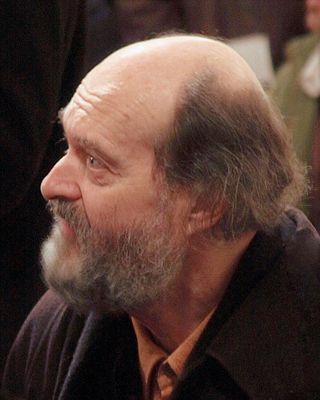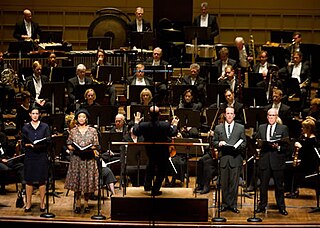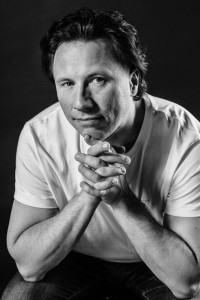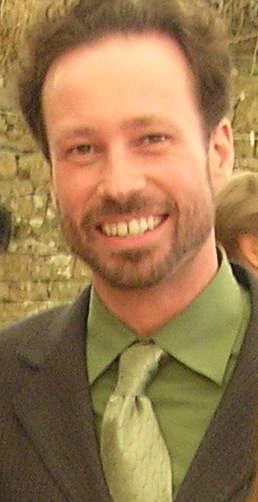
Arvo Pärt is an Estonian composer of contemporary classical music. Since the late 1970s, Pärt has worked in a minimalist style that employs tintinnabuli, a compositional technique he invented. Pärt's music is in part inspired by Gregorian chant. His most performed works include Fratres (1977), Spiegel im Spiegel (1978), and Für Alina (1976). From 2011 to 2018, and again in 2022, Pärt was the most performed living composer in the world, and the second most performed in 2019, after John Williams. The Arvo Pärt Centre, in Laulasmaa, was opened to the public in 2018.

Erkki-Sven Tüür is an Estonian composer.

Tania León is a Cuban-born American composer of both large scale and chamber works. She is also renowned as a conductor, educator, and advisor to arts organizations.

Steven Edward Stucky was a Pulitzer Prize-winning American composer.

Kristjan Järvi is an Estonian American conductor, composer and producer. Born in Tallinn, Estonia, he is the younger son of the conductor Neeme Järvi and brother of conductor Paavo Järvi and flutist Maarika Järvi.

Huck Hodge is an American composer of contemporary classical music.

Gregory Mertl is an American composer that has garnered commissions from the Tanglewood Music Center (1999), the Rhode Island Philharmonic (2000), the Tarab Cello Ensemble (2001), the Phoenix Symphony (2001), the Wind Ensembles of the Big Ten Universities (2002), the Ostrava Oboe Festival, Czech Republic, Kenneth Meyer and the Hanson Institute (2006), the University of Oregon (2013), CSTMA (2013), counter)induction (2016), the University of Niš (2016), and the Barlow Endowment for a piano concerto for pianist Solungga Liu and the University of Minnesota Wind Ensemble, Craig Kirchhoff, conductor, which was premiered in November, 2011 and released by Bridge Records in May 2017.

Erki Pehk is an Estonian conductor and artistic director of opera music festival PromFest.
Michael Schelle, born January 22, 1950, in Philadelphia, is a composer of contemporary concert music. He is also a performer, conductor, author, and teacher.

Jüri Reinvere is an Estonian composer, poet and essayist who has been living in Germany since 2005. Jüri Reinvere's polystylistic art does not follow any dogmas of material nor technique. It is often devoted to existential themes of history, nature, politics and the poetics of human perception. His poetry and music theatre works are based on precise psychological observation and are often accompanied by subtle theological allusions. His essays in Postimees and in Frankfurter Allgemeine Zeitung take part in debates on current cultural and political affairs and have been awarded with prizes for journalism in Estonia. His music has received international attention through conductors such as Andris Nelsons, Paavo Järvi, Franz Welser-Möst, Pablo Heras-Casado, Juraj Valcuha or Pietari Inkinen and through orchestras such as the Berlin Philharmonic, the Cleveland Orchestra, the Leipzig Gewandhaus Orchestra and the Bavarian Radio Symphony Orchestra.

Andres Mustonen is an Estonian conductor and violinist.

Kristi Mühling is a professional Estonian chromatic kannel player who specialises mainly on classical and contemporary music. She has premiered numerous compositions for this instrument, both as a soloist and chamber musician. She is a member of regularly performing ensembles such as Resonabilis and Una Corda. Kristi Mühling is also the founder of the chromatic kannel specialty at the Estonian Academy of Music and Theatre and has worked there since the establishment of the specialty in 2002.

Ardo Ran Varres is an Estonian composer and actor.

Villem Kapp was an Estonian composer, organist and music teacher.
Lansing McLoskey is an American composer of contemporary classical music. His Zealot Canticles: An Oratorio for Tolerance was a winner of the 61st Annual Grammy Award for Best Choral Performance by the ensemble The Crossing. McLoskey serves as a Professor of Music at the Frost School of Music in Miami, Florida. Among McLoskey's numerous commissions are those from Guerilla Opera, Copland House, The Fromm Foundation, The Barlow Endowment, N.E.A., The Crossing, ensemberlino vocale, New Spectrum Foundation, Ensemble Berlin PianoPercussion, Passepartout Duo, the Boston Choral Ensemble, and Kammerkoret NOVA.
Tallinn Chamber Orchestra is a chamber orchestra located in Tallinn, the capital city of Estonia.
Boris Kõrver was a Soviet and Estonian composer.

Urmas Lattikas is an Estonian composer and jazz pianist.

Märt-Matis Lill is an Estonian composer.
Malle Maltis is an Estonian composer. She currently teaches composition and electronic music at the Estonian Academy of Music and Theatre and has been a music director at the Estonian Drama Theatre since 2013. She is also a member of the Estonian Composers' Union.














